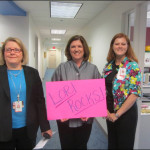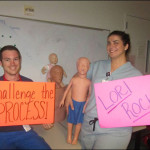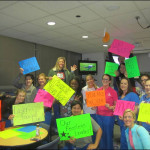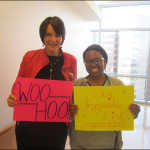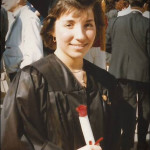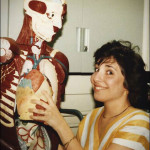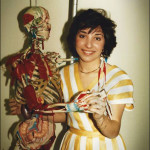
New brand book shares power and architecture of Texas Children’s brand
You’ve just made the finishing touches to your department’s monthly newsletter, but you feel like it’s missing something. You’re thinking, “Maybe I should add the Texas Children’s logo.”
Or maybe you’re designing your unit’s Go Texan Day t-shirt, and you’ve cleverly come up with a graphic of a cowboy lassoing the Texas Children’s logo.
Intentions in both scenarios are good – you’re a Texas Children’s employee, and you want to show your pride and passion for the organization. But our red logomark is more than that familiar dot with the three arcs beneath it. The logomark is only part of the full logo. The Texas Children’s logo is the primary representative of our brand, and whether it’s on a billboard, a button or letterhead, it still serves to communicate who Texas Children’s is and what we stand for. That’s why it’s important that all staff and employees know how to treat the logos in our system and when and where they should – or should not – be used.
“A brand is who and what an organization represents to its key audiences,” said Amber Tabora, Texas Children’s vice president of Marketing and Public Relations. “An organization’s name and logo serve as shorthand for its brand – what the organization would like its audiences to think and feel about it. The stronger the brand, the easier it is for an audience to understand the organization and what it stands for.”
Marketing and Public Relations recently debuted the Texas Children’s Brand Book to help staff and employees harness that aforementioned pride and passion and direct it in a way that makes our brand even stronger. The new Brand Book defines the Texas Children’s brand, our audiences, our organizational structure and more to help staff and employees understand how all elements of the Texas Children’s brand – the logo, the images, the experience – reflect our organizational identity.
“The book explains the Texas Children’s ‘promise,’ our positions and pillars of support, our brand voice and language, brand imagery and how to become a brand ambassador,” said Lisa Yelenick, Texas Children’s director of Brand and Service Line Marketing. “As an employee, this is important information to be equipped with because our organization impacts the lives of children, women and their families every day. Each time we are with them, we are representing the Texas Children’s brand.”
Texas Children’s Brand Book is available online, and we encourage every employee to take a few minutes to learn about our brand and how to be a brand ambassador. To support the book’s contents, this summer, a series of videos will further demonstrate the power of the Texas Children’s brand and the responsibilities we all play as ambassadors.
“Our goal is to strengthen the Texas Children’s brand locally and globally,” Yelenick said. “By delivering strategic, consistent messages and exceptional experiences, we as an organization will support a brand that is increasingly powerful, meaningful and valuable.”









